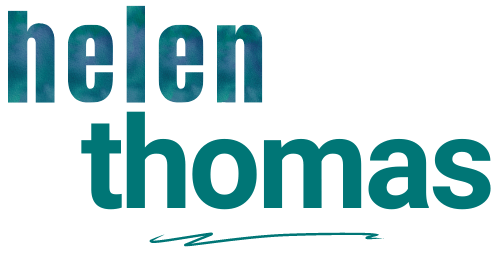As a coach, asking questions is my bread and butter. If you’ve ever wondered what value a coach offers, this is it… we ask you better questions than you’ll ask yourself and we’ll show you how to ask more valuable questions… of yourself, and of others.
And why is it important to ask valuable questions? Well, quite simply, because when you do, you’ll receive better answers.
For example, I often get asked by friends or colleagues to “look over their resumé”. In the past, I would done a quick scan, made some light edits, corrected obvious spelling or grammar issues, and sent it back. These days, I’d think about structure, story, and the intended purpose. Either response could be “right” or completely “wrong”… depending on what assistance the requestor was looking for.
You see, if you ask someone to “look over” something you’ve written, expecting some constructive guidance, but receive instead a human spell check… you’ll likely end up disappointed when your message misses the mark.
Asking great questions is an underrated skill
Today, when our instinct is to have and provide our opinions, we’ve lost sight of the value of asking good questions. When you ask good questions, you’re better placed to help, to learn, and to problem solve.
While some professions (legal, medical, journalism) are trained in the art of asking valuable questions, research conducted by Harvard Business School, highlighted that many corporate managers and leaders don’t consider “questioning as a skill that can be honed – or consider how their own answers to questions could make conversations more productive.”
The reason issues crop up in teams or businesses is because individuals hold different opinions… so, you and I listen to the same presentation on this year’s business objectives, but we may end up with completely different opinions regarding the underlying purpose or intended outcomes. Why? Well, because we might think differently and hold different perspectives.
And the best way to understand different perspectives is… you guessed it… by asking better questions.
How to ask better questions
1. THINK ABOUT THE ANSWER YOU WANT
Do you want a review of the structure and function or your resumé or a grammar and spell check? When you ask a question, do you need facts or opinion? Guidance or referrals? Coaching or training? Consider the context and the outcome you’re seeking.
2. MAKE YOUR QUESTION “DO THE WORK”
Refrain from questions that don’t ask anything i.e. “I’m looking for a new job, will you let me know if you hear of anything?”. This question is pointless because you’re asking the other person to “do the work”, to scan their environment, make assumptions about you, and join the dots. When you make your question clear and specific, you remove the guesswork and increase the likelihood of a positive result.
3. LISTEN & REFLECT
A valuable conversation requires not just good questions but also active listening. You know the scene, you’re telling a story and the other person jumps in with, at best, a semi-relevant statement, or worse, a completely unrelated point. Instead of listening as you speak, their mind is racing ahead thinking about what they want to say next. When you ask a question, take the time to tune in and really listen to the answers.
4. GO DEEP & GET CURIOUS
Master the art of the follow up question. Things like “what makes you say that?” or “why do you think that” or “what’s been your experience around that?” will often lead to deeper, underlying insights that could hold even more value. Asking these types of questions also highlights your listening skills and shows you’re interested and care about what the other person is sharing.
5. USE THE POWERFUL PAUSE
This is one of the best pieces of advice I’ve ever received… get comfortable with a pause and silence. Our human instinct is to “fill the silence”. So, if you’ve asked a question and received an answer, it’s tempting to jump in and keep talking the moment there’s a natural break. But… learning to remain quiet and let the other person fill the silence is important because often the most valuable information will be delivered after that pause.
Asking great questions is a skill you will master with practice. With each intentionally posed question, your skill will improve. Don’t be afraid of looking silly or being judged… the one question you’ll regret is the one you didn’t ask. And it’s far better to be known as “the one who asked questions” than “the one who thought they already knew it all”. If you keep bumping up against the same obstacles when it comes to taking the next steps in your career and you’re ready to think differently about what’s next, let’s discuss how I can help you stop hoping for it to happen and take action.

